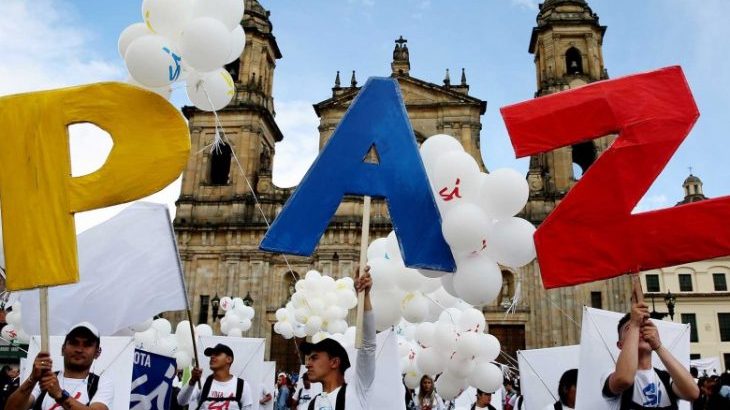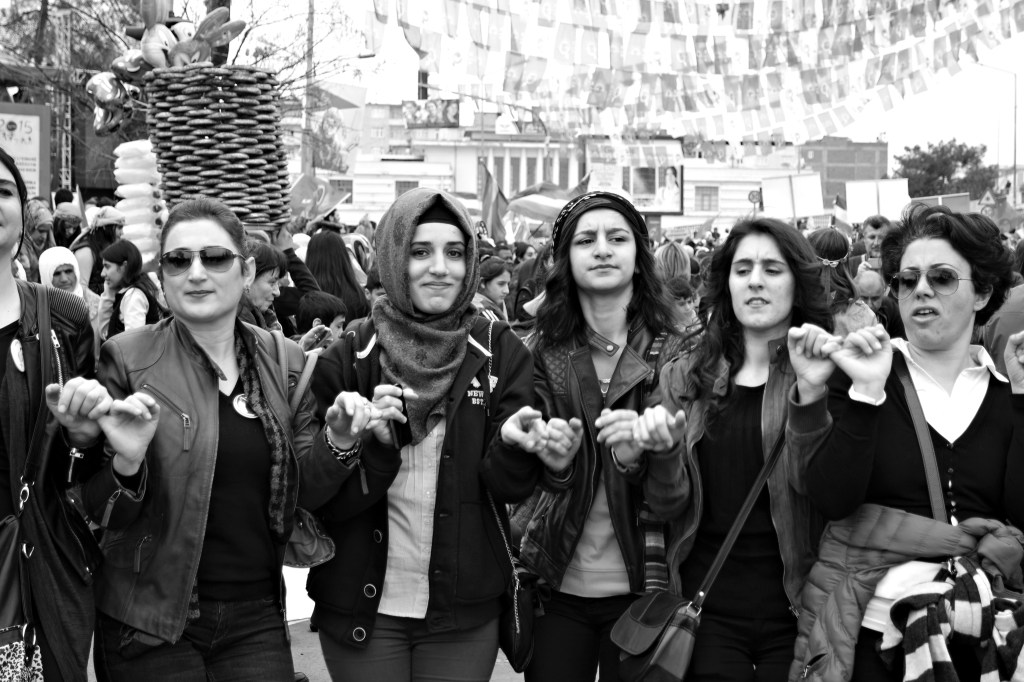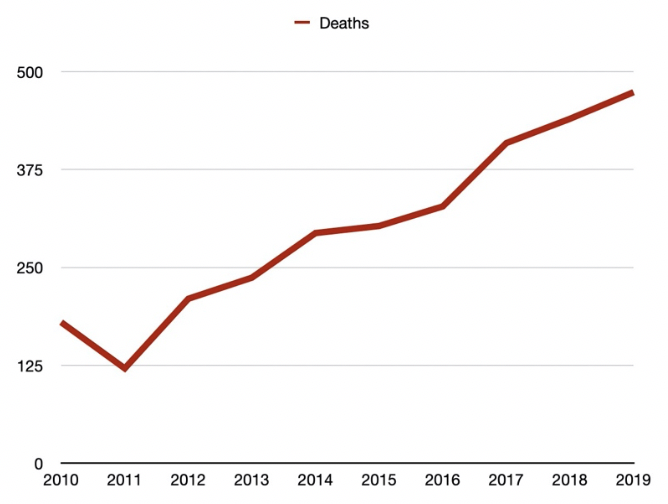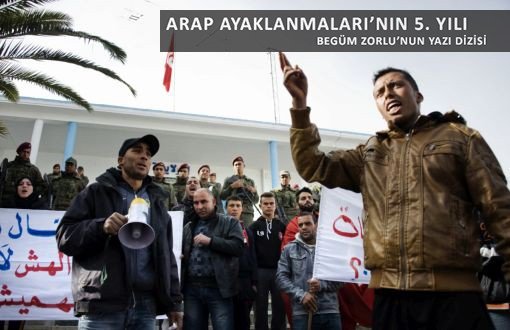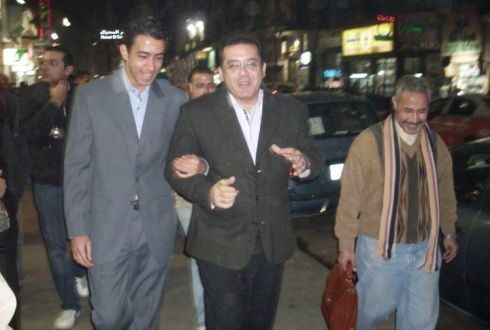Bu yazı Bianet, Biamag için yazılmıştır.
FARC (Kolombiya Devrimci Silahlı Güçleri )ve Kolombiya devleti arasında 2016 yılında imzalanan barış anlaşması ile birlikte yarım yüzyıl boyunca devam eden çatışma sürecinin nihai sona getirmesi umuluyordu. FARC, 2016 sonbaharında imzalanan anlaşmadan yedi ay sonra uluslararası gözlemcilerin eşliğinde silahlarını teslim etmiş ve partileşme sürecine odaklanmıştı[1]. Verilen silahlar Bogota’da Fragmentos (Parçalar) isimli yapının tabanına barışı simgelemek için parke taşı olarak döşenmişti. Kapsayıcı barış anlaşması ve toplumsal cinsiyet perspektifi[2] içerdiğinden ötürü barış çalışmalarında da örnek olarak gösterilen bu süreç, akademisyen ve aktivistler tarafından da ilgiyle takip edilmişti.
Kolombiya’daki barış süreci hala akademisyenler ve aktivistlerin gündeminde fakat özellikle geçtiğimiz yıldaki gelişmeler barış sürecin çatırdadığına dair işaretler veriyor. Özellikle COVID-19 salgını ile birlikte insan hakları aktivistlerine, topluluk liderlerine artan saldırılar ve hükümetin süreci yürütmedeki başarısızlığı endişe yaratıyor. Bu yazı geriye doğru giden sürecin adımlarını ve son gelişmeleri, literatür ve haberleri özetlemeyi amaçlıyor.
Referandum ve Muhafazakar Başkan Duque’nin Seçimi ile Başlayan Gerileme
2016 sonbaharından bugüne barış süreci nasıl evirildi ? Örnek bir barış sürecinden, çatırdayan bir duruma nasıl ulaşıldı? Tartışmaya anlaşmadan sonra gerçekleşen referandum ile başlayabiliriz. Anlaşmanın imzalanmasının hemen ardından halk oylamasına sunulan barış anlaşması, yüzde 50,24 oyla reddedildi. O zamanki cumhurbaşkanı Juan Manuel Santos ve FARC liderliği buna rağmen çatışmayı dindiren açıklamalarda bulundu. Open Democracy’nin yorumuna göre anlaşma, referanduma sunulduğunda siyasi bir araç haline geldiğinde ivmesini kaybetti ve kutuplaşma toplumsal barışın önünü kesti. Fakat Santos’un barışı koruyan tavrı, FARC’ın ateşkesi koruması ve uluslararası toplumun desteği barış sürecini canlı tutmaya devam etti.
Anlaşmanın çatırdamasını sağlayan ana faktörlerden birinin 2018 yılında muhafazakar ve anlaşmayı eleştiren Iván Duque’nin cumhurbaşkanı seçilmesi olduğunu söylemek mümkün. Atlantic dergisinde yazan Juan Arredondo’ya göre şiddetin artmasında bir çok faktörün yanında öncelikli olarak barışa siyasi desteğin olmaması öne çıkıyor. Duque’nin seçimi ile birlikte şiddette açık bir artış ve siyasi katılımda sarsıntı yaşandı. Artan şiddet ortamında Duque, anlaşmanın getirdiği adalet mekanizmalarını ve süreç için gereken bütçeyi hedef aldı.
FARC’ın siyasi temsilindeki kırılmalarından biri geçtiğimiz sene yaşandı. Barış görüşmeleri sırasında grubu temsil eden kıdemli bir FARC komutanı olan Iván Márquez, Senato koltuğunu bırakıp saklandığını açıkladı ve daha sonra kendisinin ve bir grup muhalifin yeniden silahlandığını söyledi. Bu kararını hükümetin ihanetinden ötürü aldığını belirtti[3]. Ayrıca 2019 sonbaharının sonlarında Kolombiya ordusu tarafından düzenlenen askeri baskında 12-17 yaş arası 8 çocuğun öldürüldüğü haberi geldi ve Iván Duque ve kabine üyelerine karşı artan hoşnutsuzluğu körükledi. Artan şiddet, yolsuzluk ve hükümete karşı ekonomik hoşnutsuzluğun birleşmesi ile kitlesel eylemler gerçekleşti. Hükümetin barış anlaşmasına sadık kalacağına dair inançta önemli bir düşüş oldu.
Akademik çalışmalar ve uluslararası gözlemciler hükümetin barış için gerekenleri yapmadığının ısrarla altını çiziyor. Barış anlaşması ile birlikte Normalleşme için Yerel Geçiş Alanları, FARC’ın sivil hayata yeniden entegre edilmesi için kurumsal yapı ve ülkenin hazırlanması için gerekli koşullarını yaratmak amacıyla oluşturulmuştu[4]. Madrid Complutense Üniversitesi’nden Rios Sierra’nın da belirttiği gibi yerel düzeyde çözülmemiş bölgesel hükümet yetersizlikleri de özellikle FARC ile silahlı çatışmanın vurduğu bölgenin çoğunda yokluğu hakim kılıyor ve yeni bir şiddet dalgası yaratıyor. Hükümetin yetersiz finansmanının süreci baltaladığını belirten Rios Sierra kaynakların şiddetten en çok etkilenen yerlere dağıtılmasındaki aşırı yavaşlığın; ya da yasal engellerin bu gerilemeyi yarattığını söylüyor. Akademisyen Shauna N. Gillooly de bu bölgelerde, hükümetin anlaşmalarda vaat ettiği sağlık, içme suyu ve barınağın yokluğunu vurguluyor. Yerelin sorunlarına, ihtiyaçlarına ve dinamiklerine odaklanmayan bir süreç ise aşağıda bahsedilecek şiddet sarmalını körüklüyor.
Pandemi Kıskacında Topluluk Lideri ve Hak Arayıcılarına Yönelik Saldılar ve Suikastler
London School of Economics (LSE) bünyesindeki Kadın, Barış ve Güvenlik Merkezi’nde araştırmalarını yürüten Dr. Elena B. Stavrevska Kolombiya’da barış anlaşması imzalandığından beri siyasal şiddet ve cinayetlerin arttığının[5] ve özellikle pandemide öldürülen aktivist ve topluluk liderlerinin sayısının çok yükseldiğinin altını çiziyor. Birleşmiş Milletler (BM) 2020’nin başından bu yana en az 42 katliam kaydettiğini, ve bunun 2016’nın eski FARC savaşçılarıyla barış anlaşmasının imzalanmasından bu yana en yüksek rakam olduğunu söyledi. Uluslararası Kriz Grubu’nun raporuna göre 2016’dan bu yana en az 415 topluluk lideri öldürüldü ve yüzlerce daha fazla tacize uğradı veya zorla yerinden edildi.
Daha çok yerelde yaşanan bu şiddet süreci barışın neden gerilediğini anlamak için çok önemli. Anlaşmanın çatırdamasında bir önemli noktanın ise suç çeteleri ve uyuşturucu kaçakçıları yeniden ortaya çıkması olduğunu söylemek mümkün. Arredondo’nun gösterdiğigi gibi bu gruplar Kolombiya’nın yasa dışı uyuşturucu ve madencilik endüstrilerini kontrol etmek için sendika örgütleyicileri, yerli liderler, çevreciler ve topluluk aktivistlerini hedef alıyor. Bu gruplar silah bırakan FARC militanlarının bölgelerinde kontrol sağlamayı amaçlıyor. Devlet ise yereldeki lider ve hak arayıcılarını koruyamıyor.
Uluslararası Kriz Grubu’nun birkaç gün önce yayınlanan raporu cinayetlerin büyük çoğunluğu Antioquia, Cauca ve Chocó gibi çatışmalardan uzun süredir etkilenen bölgelerde meydana geldiğini belirtiyor. Rapora göre savcılar tarafından tutulan rakamlar, cinayetlerin yüzde 59’unun kimliği tespit edilebilen silahlı gruplara, yüzde 39’unun bilinmeyen kişi veya gruplara ve yüzde 2’sinin askeri görevlilere atfedilebileceğini gösteriyor. Çalışmanın belirttiği gibi suikastlar ve tehditler kolektife “sessiz kalma, belirli hakları savunmayı bırakma veya silahlı grupların çizdiği görünmez sınırlar içinde kalma[6]” mesajını yolluyor. Aynı zamanda kadınların cinsel şiddet tehdidi alma veya çocuklarının ya da aile üyelerinin taciz edildiğini görme olasılıklarının çok daha yüksek olduğunun altı çiziliyor. “LGBT topluluğunun liderleri, kendilerine yönelik şiddet içeren ve hatta ölümcül niyetlere açık bir referans olan “sosyal temizlik” ihtiyacını öne süren mesajlar aldıklarını[7]” bildiriyor.
KOVID-19 bağlamında ise altı aya yakın bir süre boyunca virüsün yayılmasını sınırlamak için ülke içi seyahatlerin kısıtlanması ile birçok uzaktaki topluluğun izole edildiği vurgusu yapılıyor ve “silahlı gruplar hükümetin dikkat dağınıklığından yararlanarak topraklardaki kontrollerini sıkıştırdıkları” söyleniyor. Pandemi sürecindeki veriler iki aylık kısıtlamalar esnasında, topluluk lider cinayetlerinin, ulusal cinayet oranı yüzde 16 düşerken, yüzde 53 arttığını gösteriyor[8].
Kırılgan Gelecek
Mevcut gelişmeler hükümetin barışı tesis etmesi için hem güven sağlaması hem de sağlam adımlar atması gerektiğini gösteriyor. Özellikle bu sene yaşanan saldırı ve katliamlar Duque hükümetinin barış anlaşmasının ana noktalarından biri olan sivil toplumun korunmasını sağlayamadığını gösteriyor. Fakat 2016 yılında görkemli törenler ve sembolik birliktelikler ile başlayan umut sönmüş değil. Geçtiğimiz sene ekonomik ve sosyal sorunların bir arada protesto edilmesi ve kitlesel protestolardaki barış vurgusu, barış için desteğin varlığını gösteriyor. Hem yerelde hem de şehirlerde kadın örgütleri, mağdurlar, sivil toplum adalet aramaya devam ediyor. Son analiz ve araştırmaların gösterdiği en acil dönüşüm yerelde barış anlaşmasının maddelerini uygulamak; insan hakları aktivistleri ve yerel liderleri korumak oluyor.
[1] FARC aynı kısaltmayı kullanarak siyasi partisinin adını “Halk için Alternatif Devrimci Güç” yapmıştı.
[2] Demos’un Kolombiya raporu süreçte, kadınların ve LGBTQİ+ kesimin barış inşacısı olarak daha önceki hiçbir örnekte bu derece tanınmamış olmasıyla öne çıktığını belirtiyor. https://demos.org.tr/baris-ve-toplumsal-cinsiyet-kolombiya-baris-sureci-raporu/
[3] Open Democracy ayrıca hükümetin toprak dağıtımı ile ilgili taahhütlerini yerine getirmediğinin de altını çiziyor ve sonuç olarak, FARC muhaliflerinin faaliyet gösterdiği alanlarda daha fazla çatışma ortaya çıktığını belirtiyor.
[4] Anastasia Shesterinina The Conversation’daki yazısında 13.000’den fazla eski savaşçının sivil olarak yaşadığını ve bazılarının sivil hayata topluluklar olarak girerek kolektif bir yol izlediğini, diğerleri kendi işlerini kurup, iş piyasasına girdiğini veya ailelerine geri döndüğünü belirtiyor. Bunun yanında birçok eski FARC üyesi, geçiş bölgeleri olarak kurulan kırsal yerlerde gruplar halinde yaşadığını söylüyor.
[5] Sivil toplum örgütü INDEPAZ öldürülen aktivist ve liderlerin listesini tutuyor. http://www.indepaz.org.co/lideres/
[6] Sayfa i
[7] Sayfa 10
[8] Sayfa 26
